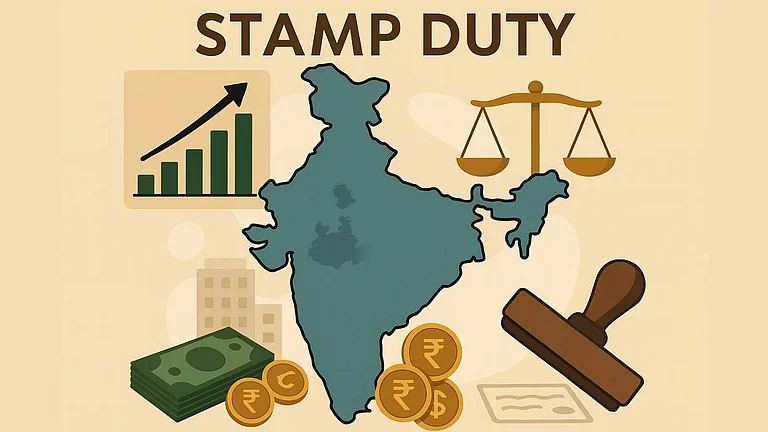A rental agreement is not a formality; it is a contractual arrangement that safeguards rights and expectations. In metro cities like Bengaluru, Pune, and Delhi NCR, where residential rentals are high, ignoring the legal basis of tenancy can snowball into conflict.
With demand rising in both the mid-range and premium sectors, landlords and tenants alike must get the fundamentals right. A clearly drafted rental contract eliminates ambiguity, nailing things down in black and white, and ensures both parties are acting upon information not assumptions.
The consequences of skipping or skimming provisions are not trivial. Landlords may incur property abuse, uncollected dues, or protracted litigation. Tenants may risk sudden eviction, delayed deposits, or unexpected charges. Where both parties have skin in the game, every provision matters.
Which personal details must be presented in a rental agreement?
The rental agreement begins with the basics including the complete legal names of the tenant and landlord, permanent residential address, and identification numbers, typically Aadhaar or PAN.
Any vagueness in the above can cause loopholes. The full address of the property should be provided including the flat number, floor, name of building, street, city, and postal code. If the agreement is about specific furniture or appliances, the same must be mentioned in detail. Omitting them can later be disputed when it is time to vacate.
How long should a rental agreement last in India?
Most residential agreements in India are drafted for 11 months. This helps avoid the complications of rent control laws, which kick in after 12 months in many states.
Some landlords include a "lock-in" clause, a non-negotiable minimum stay (usually six months) prior to the tenant being able to leave the lease without monetary penalty. If it does indeed exist, it should be prominently highlighted, not hidden in legal mumbo-jumbo.
What about the rent amount, payment mode, and due date?
Rent isn't just a number, it's a timeline and a method. The agreement must clearly state the monthly rent, the exact day by which it must be paid (typically the 5th of each month), and how it will be paid, such as UPI, bank transfer, or cheque.
It should also define penalties in case of delays. A 2 per cent or 3 per cent late fee per day or per week is common. Landlords often ignore this until payments are delayed, and tenants contest the penalty. Having this upfront avoids future disputes.
Is the security deposit refundable?
Yes, but only if conditions are met. Security deposits range from one to six months' rent, depending on city norms. In Mumbai and Bengaluru, for example, six months is not unusual.
The contract should specify the amount of deposit to be paid, when to pay, and how it will be refunded. It should also indicate deductions for unpaid rent, damage to property, or overdue utilities.
Should the list of fittings and fixtures be part of the agreement?
A clause detailing the provided amenities, from ceiling fans to water purifiers, geysers to built-in wardrobes, should be part of the annexure.
This clause protects both parties. Landlords can point to damage or missing items. Tenants can prove no such items were provided. Including photos during move-in, attached as annexures, adds further credibility.
Who handles repairs and maintenance?
This often creates friction. The agreement must clarify who pays for what. Minor repairs leaky taps, broken bulbs are usually the tenant's responsibility. Structural issues, major plumbing, electrical faults, or repainting typically fall on the landlord.
In gated societies, monthly maintenance fees are often paid by the landlord but may be passed on to the tenant. This too must be stated clearly. Hidden maintenance costs have led to legal challenges in multiple Indian metros.
Can tenants renovate or modify the property?
Generally, no, not without permission.
Even if permitted, the contract can state whether these alterations are to be reversed on vacating. Otherwise, they become flashpoints in the final inspection.
What usage rules must tenants abide by?
Residential houses are intended for residential occupancy not for conducting businesses, subletting, or keeping paying guests. This include a clause barring unlawful activities, excessive noise, and nuisance to neighbours. Landlords increasingly include society rules and expect tenants to abide by them especially in gated communities and RWA-regulated properties.
How is early termination handled?
A clause on the notice period is crucial. Most agreements require a one-month notice from either side. If either party fails to comply, penalties apply.
Some landlords deduct one month's rent if tenants vacate without notice. Others impose forfeiture of the deposit. Likewise, if landlords evict before the notice period, they may owe compensation. None of this holds up without the clause spelt out.
How does renewal and rent escalation work?
In cities where rents climb steadily, a rent escalation clause ensures future transparency. Most rental agreements don't stay static. Landlords expect a bump, tenants want predictability. That's where the escalation clause comes in. It typically locks in a rent increase of 5 to 10 per cent when the lease rolls over. Whether that happens automatically or requires a fresh signature must be clearly spelt out.
When this clause is missing, things get messy. Tenants contest hikes they weren't warned about. Landlords, in turn, may push for early termination or quietly shop for someone who'll pay more. Setting the terms early avoids that cycle.
Why the paperwork must go to court
An agreement typed, signed, and sealed on stamp paper still won't hold if it's not registered and that's a mistake many renters make. Courts often dismiss unregistered rental contracts outright in disputes.
States like Maharashtra don't leave room for guesswork agreements beyond 11 months must be registered. Who pays for the registration? Sometimes it's the landlord. Sometimes it's split. Either way, it needs to be written down. Prompt, paperless, and legally binding. But if skipped, even the best-written agreement turns useless when it matters most.

















